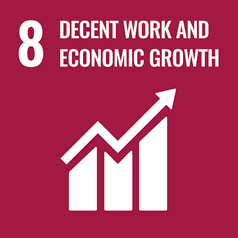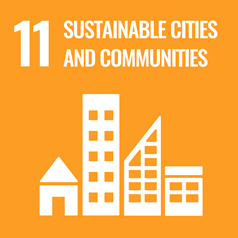Gen Z and Business Transformation on the Agenda as 250 turn out for University’s Industry Open Day
Working with Gen Z, using research to drive economic and social impact and industry transformation in the Hunter were key topics up for discussion as more than 300 local industry leaders gathered today for the University of Newcastle’s first Industry Open Day.

The Open Day saw university and industry experts, across 10 sessions, discuss how to attract and work with Gen Z as they shape the future workplace, how best to secure an industry talent pipeline using career-ready placements, and how industry-led research with local business, researchers, startups and entrepreneurs is helping solve problems and drive industry growth in our regions.
Vice-Chancellor, Professor Alex Zelinsky said he was pleased to see so many industry professionals meet at the University’s Callaghan Campus for the Industry Open Day.
“Our region has continued to grow from strength to strength with new and emerging industries leading the way forward. The connections between local industry and the University of Newcastle are some of the strongest in the country. Industry Open Day is a link between research and education with the needs of the business community in mind,” said Professor Zelinsky.
One of the key discussions from Industry Open Day was the intergenerational opportunities and challenges industries face, especially as Gen Z enter the workforce.
Pro Vice-Chancellor Education and Innovation, Professor Steven Warburton said the panel discussion about Gen Z highlighted this generation has the capabilities to innovate workplaces, when they are provided with the right environment.
“We know that Gen Zs particularly value work that aligns with their values and contributes to a larger purpose. They also prioritise a supportive environment that allows them work-life balance and the flexibility to make work fit in with their lives,” Professor Warburton said.
“To attract the next generation to the workforce, businesses need to create a values-driven environment that provides resources for work-life balance and promotes a healthy workplace culture. Other opportunities like job rotation can help to retain a younger generation by providing new opportunities.
“Gen Zs also have a tech-savvy and entrepreneurial mindset, which has the potential for businesses to use these new ways of thinking to not only attract talented graduates but also to use their creative problem-solving to generate new ideas.
“This year, the University introduced a new Career Ready Placement program, where every student undertakes practical work placement during their degree. It not only helps students to develop the skills to make them career-ready, but also allows industry to tap into knowledge of the latest research and technologies that our students are utilising in their studies, and develop relationships with future employees,” Professor Warburton said.
Pro Vice-Chancellor Industry and Engagement, Warwick Dawson discussed the changing Hunter landscape and said the University is proud to have strong partnerships with local industry.
“The Hunter is the largest regional economy in Australia and emerging industries are rapidly transforming the region. With engagement being one of the University’s core values, we have worked hard to create strong industry and community partnerships that not only benefit our students and staff, but also ensure we are central to our regions’ growth and prosperity.
“We are in a phase where we are moving toward solution-based, applied research to solve industry problems. In the coming years we will see more researchers working for and with industry to solve problems and bring new technology to market sooner.
“The move to clean technology is a key example of how research projects are solving industry problems and as a university we are well placed to use our technology and facilities to bring industry in and solve these problems,” said Mr Dawson.
Related news
- Launch of the School Students’ Statement on the Right to a Healthy Environment
- Funding boost to technology for lower emission steel
- Newcastle team on mission to improve childhood cancer outcomes
- Shanae’s passion for caring delivers her dream to work in health
- Food and nutrition degree serves Keren a rewarding career
The University of Newcastle acknowledges the traditional custodians of the lands within our footprint areas: Awabakal, Darkinjung, Biripai, Worimi, Wonnarua, and Eora Nations. We also pay respect to the wisdom of our Elders past and present.




